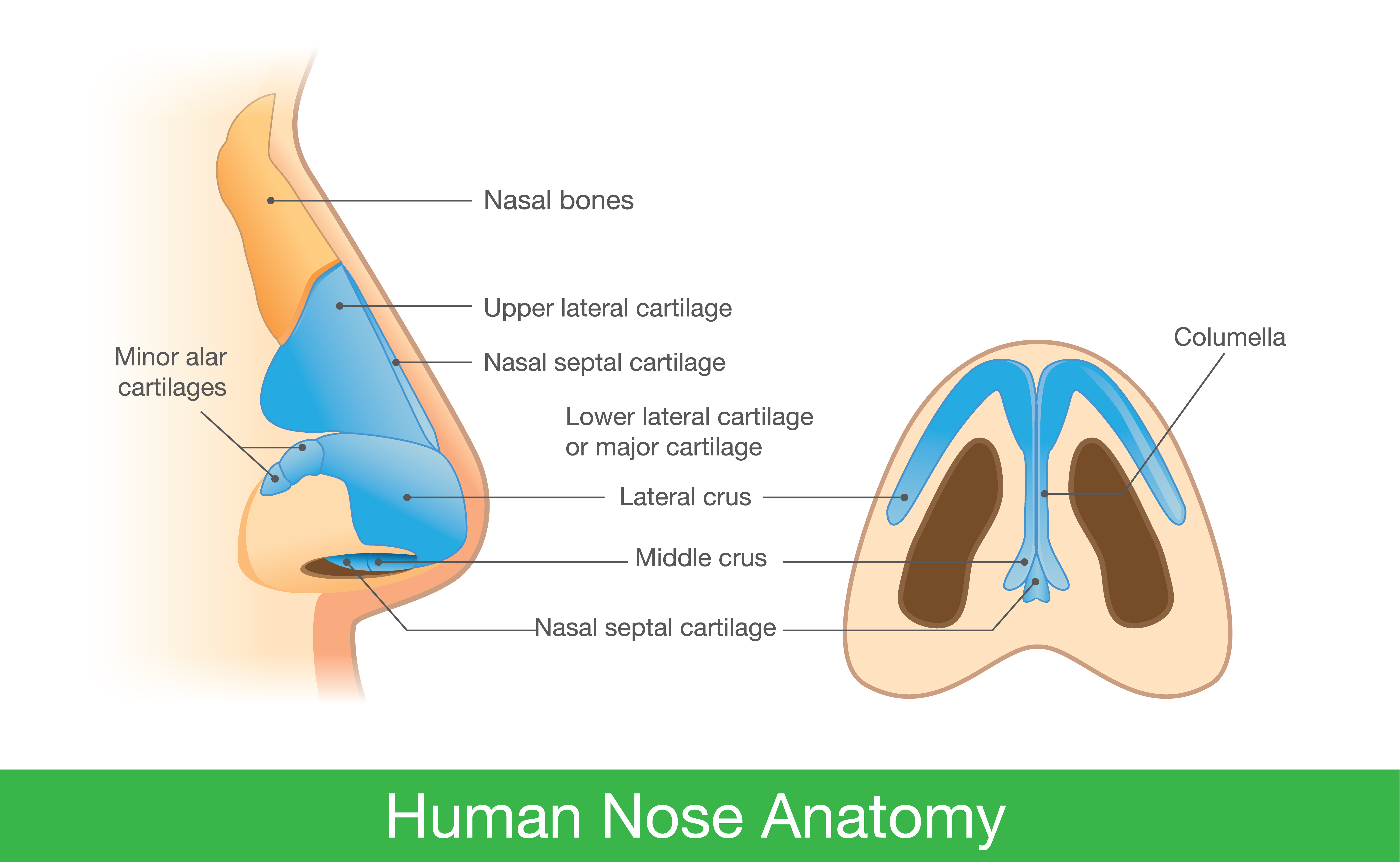
nose
Definition
In anatomy, the nose is the organ in the face that is responsible for the smell. It is also involved in breathing and regulating body temperature. The nose is made up of bone, cartilage, and muscle. It is divided into two nostrils, which are openings that allow air to enter the nose.
The inside of the nose is lined with a moist membrane that contains tiny hairs and special cells. The hairs help to filter the air that enters the nose and they also help to trap dust and dirt. The special cells in the membrane can detect different smells.
When we smell something, the molecules of the smell travel up the nose and into the moist membrane. The special cells in the membrane then send signals to the brain, which interprets the signals as different smells.
The nose is important for many reasons. It allows us to smell different things, which can help us to enjoy our food, stay safe, and avoid danger. It also helps to regulate our breathing and to warm the air that we breathe in.
The nose is also important for communication. When we talk, the air that we breathe out passes through the nose and vibrates the vocal cords. This vibration creates sound waves, which are the sounds that we make when we talk.
The nose is a complex organ that plays an important role in many different functions. It is a vital part of our body and it helps us to enjoy life.
How can the word be used?
The nose is an important organ for breathing, smelling, and tasting.

Different forms of the word
Noun: The part of the face that projects forward and contains the nostrils.
Verb: To perceive or detect something by smell.
Adjective: Relating to the nose.
Etymology
The word "nose" comes from the Old English word "nosu," which is also the source of the Dutch word "neus" and the German word "Nase." The Old English word "nosu" is thought to be related to the Proto-Germanic word "nasu," which also means "nose.".
The word "nose" was first used in English in the 8th century. It was used to refer to the part of the face that projects forward and contains the nostrils.
Question
Why is your nose important?
AQA Science Exam Question and Answer
Question:
Explain the role of the nose in the respiratory system and how its structure is adapted for its functions.
Answer:
The nose plays a crucial role in the respiratory system as it serves as the primary entry and exit point for air during breathing. Its structure is well-adapted to perform functions related to both respiration and olfaction (sense of smell).
The nasal cavity is lined with mucous membranes containing cilia, tiny hair-like structures. When we inhale, the cilia move in coordinated waves to trap and filter out dust, pollutants, and microorganisms present in the air. This process helps to prevent these harmful particles from entering our lungs, maintaining respiratory health.
Moreover, the nose contributes to the warming and humidification of incoming air. The large surface area of the nasal cavity allows for an efficient exchange of heat and moisture with the air. This is important because the respiratory passages are sensitive to dry or cold air, which can lead to discomfort and irritation.
Additionally, the nose is responsible for our sense of smell. Specialised olfactory receptors in the nasal lining detect and identify various odour molecules, sending signals to the brain that enable us to perceive different scents.